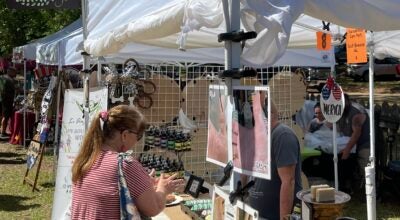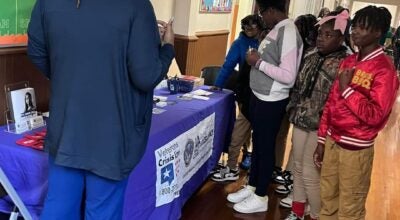Sewell invites Haley to Alabama to confirm UN study findings on US poverty
Published 4:05 pm Thursday, July 19, 2018
|
Getting your Trinity Audio player ready...
|
By Fred Guarino
The Lowndes Signal
On Tuesday, July 17, Alabama 7th Congressional District Congresswoman Terri A. Sewell sent a letter to United Nations (UN) Ambassador Nikki Haley, asking Haley to visit Alabama to confirm the findings of a study conducted by the UN Special Rapporteur for Extreme Poverty.
Sewell’s Congressional District includes Choctaw, Dallas, Greene, Hale, Lowndes, Marengo, Perry, Pickens, Sumter, and Wilcox counties along with portions of Clarke, Jefferson, Montgomery, and Tuscaloosa.
Sewell’s letter was in response to Ambassador Haley’s claim that it was “patently ridiculous” for the United Nations to examine poverty in America.
“It is not ‘patently ridiculous’ to call attention to extreme poverty in America, but it is ridiculous and shameful to disregard it and do nothing,” Sewell said.
“Every day, millions of American families struggle to put food on the table for their families or afford basic necessities like a working wastewater system or primary health and dental care. Before Ambassador Haley dismisses the realities of severe poverty in America or families living in extreme distress, she should see for herself the economically marginalized and forgotten communities that struggle under the weight of generational poverty.
“In Alabama’s 7th Congressional District, the failure of wastewater infrastructure in some rural communities has created a health crisis that should not exist in modern-day America. I invite Ambassador Haley to my district to see firsthand the suffering that I have seen, and the issues that my constituents confront every day.”
Philip Alston, UN special rapporteur on extreme poverty and human rights, visited Lowndes County on Thursday, Dec. 7, 2017 as part of a 15-day tour of the U.S. Alston made stops in Fort Deposit and Hayneville in Lowndes County to visit families.
He was joined by Catherine Coleman Flowers, director of environmental justice and civic engagement at the Center for Earth Ethics and founder of the Alabama Center for Rural Enterprise Community Development Corporation.
When asked how Lowndes compares to other places he’s been, he said, “I think everyone knows that this (Lowndes) is a county that is not rich. There are a lot of people here who are living below the poverty line. I’ve seen some of that, and it wouldn’t be a very easy life.”
He said, “We’ve been looking at places that have terrible sanitation situations where there is raw sewage spilling out into the open. People have been telling me about the great costs involved in the septic tank system and so on. And I think there is a sense that there should be a more comprehensive state program to try and address these issues.”
In her letter to Haley, Sewell quoted an Alston tweet that in Lowndes County, “I saw homes that are not connected to public sewage systems, whose owners can’t afford to install septic tanks. Many resort to digging ditches & straight piping waste water to within meters of homes, posing serious health risks.”
The full text of Rep. Sewell’s letter to Ambassador Haley is available here.
The letter follows a response from Ambassador Haley after Rep. Sewell and Sen. Sanders wrote to the Ambassador urging a plan of action from the Trump Administration for addressing poverty in the wake of the U.N. report exposing poverty in the United States.
Rep. Sewell met with Philip Alston, the UN Special Rapporteur for Extreme Poverty during his visit to the United States last year to investigate extreme poverty and make recommendations.





